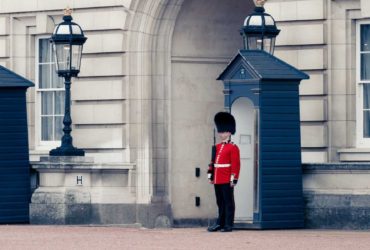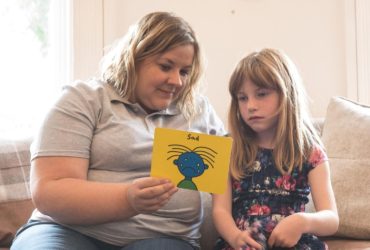With the announcement of the death of Queen Elizabeth II, some children may start to question or become more intrigued about what is happening. No doubt it will be talked about on all forms of media as well as mentioned at school, and The Queen’s funeral will be broadcast. So it can help to prepare a child to watch The Queen’s funeral.
The death of someone may be familiar to some children but to others it may be a new experience. Just as the aim is to make the first day of school as easy and seamless as possible, it can also help to do the same for a funeral, by talking it through and helping children know what to expect.
So, we’ve compiled a list of tips to help you prepare a child to watch The Queen’s funeral.
1. Prepare them in advance of the funeral
As adults, we feel more secure and well-prepared when we know what to expect. Children are no different. Discuss what they will see when the funeral is shown on TV. This could be things like pews, flowers, black clothing etc. You can bring up certain topics in little doses rather than all at once. The point is to help with any concern or confusion they may have and to prepare them for the new experience.
2. Explain what death means
Death can be a confusing and scary topic to talk about, but it can really help a child if they understand what it means and receive these explanations from a trusted adult. As adults we can also find death difficult to understand. This can mean we find talking to children about it hard, as we want to shield and protect them.
It’s important to try and help a child understand the physical side of death – the body has stopped working and they no longer need it. You can discuss what happens to the person’s soul after death, depending on your personal spiritual beliefs.
However, as you discuss the topic, for clarity and simplicity you can use words like, ‘died’ and ‘dead’. Terms like ‘gone’, ‘lost’ or ‘passed away’ can be confusing for a child who may take them literally.
3. However they feel is okay – let them know that
People feel lots of different emotions at funerals and the child will see that when they watch it. Many will be sad and that’s okay – for some, it’s a natural response to be sad when someone dies. Others may experience numbness, shock, anger, among many other emotions. Some may not look sad but sit quietly. Others may be seen smiling as someone shares a fond memory.
Make it clear to the child that it’s okay to feel the way they do when watching the funeral. If they want to cry, that’s okay. If they want to sit quietly, that’s also okay.
4. Be mindful of their needs
Whether before, during or after the funeral, pay attention to the child’s reactions and ask how they are feeling. Even though you will have prepared the child for what they are watching, they may still like to know they have the option to stop if it becomes overwhelming.
5. Ask if they want to remember The Queen in a special way
Some children may like to remember the Queen by doing something special. Perhaps they might wear a certain colour (like red, white and blue) or draw a picture. Just as it helps us as adults to find special ways to remember people that have died, it also helps children.
6. Answer any questions they might have
Be prepared to answer their questions as simply and honestly as you can. Asking questions can help them process what is happening, but don’t feel like you should have all the answers. It’s okay to say, “I don’t know” or “Let’s find out.” This helps you both learn and find the answers together.
7. Check on the child after the funeral has happened
After The Queen’s funeral, whether a few days or weeks have passed, it’s good to ask the child questions about their experience. Check in to see how they are feeling and if they need to talk through anything they saw or didn’t understand. Encourage them to share how they are feeling.
Where to get support
Winston’s Wish provides support for grieving children, young people (up to 25) and adults supporting them. Please call our Freephone Helpline team on 08088 020 021 (8am-8pm, weekdays), email ask@winstonswish.org or use our live chat (8am-8pm, weekdays). We can provide advice, support and resources.
If you need urgent support, the Winston’s Wish Crisis Messenger is available 24/7 for free, confidential support in a crisis. Text WW to 85258.

You may also like

Supporting young people after the death of the Queen
Help to answer questions from children about the Queen’s death and supporting grieving young people affected by the news.

Information and advice
Advice and resources to support children and young people, including on bereavement by suicide, homicide and serious illness.


